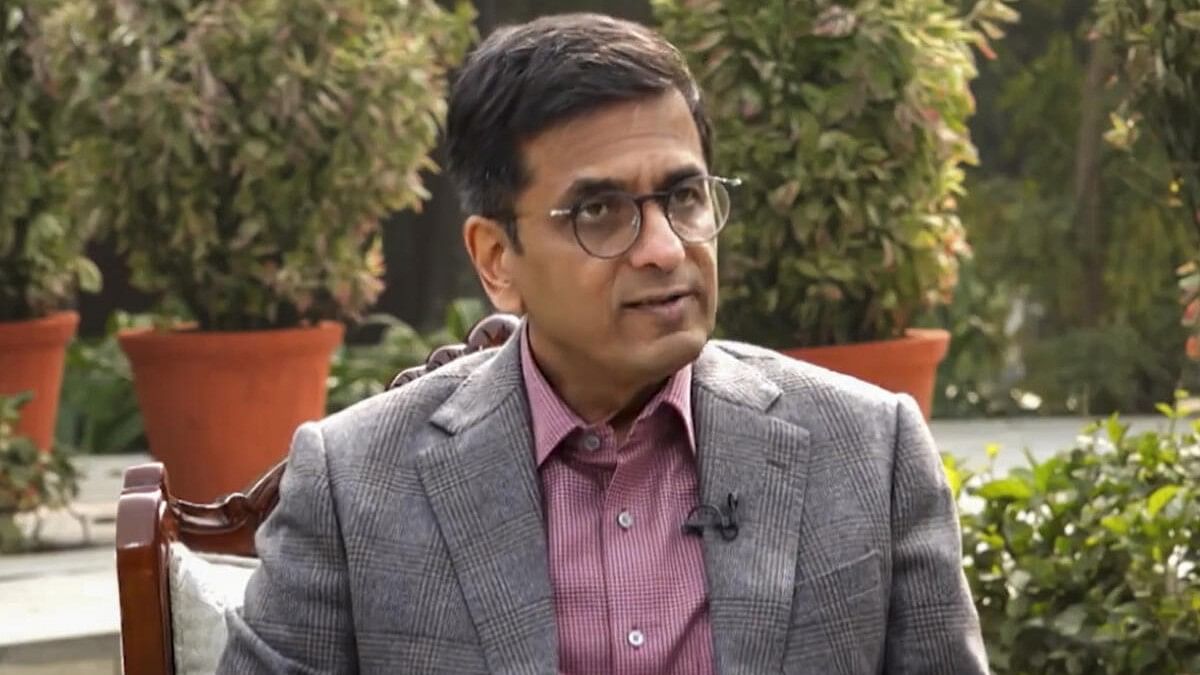
Chief Justice of India (CJI) Justice DY Chandrachud.
Credit: PTI Photo
New Delhi: Chief Justice of India DY Chandrachud on Monday refused to respond to criticism over the Supreme Court's unanimous verdict upholding the abrogation of Article 370 of the Constitution that bestowed special status on the erstwhile state of Jammu and Kashmir, saying tersely the judges decide a case “according to the Constitution and the law”.
In an exclusive interview with PTI, the CJI also spoke candidly about the five-judge constitution bench verdict refusing to legalise same sex marriages and said the outcome of a case is never personal to a judge.
The 50th Chief Justice of India, however, acknowledged the 'long and hard battle' queer couples fought for realisation of their rights.
On October 17, a five-judge bench of the Supreme Court refused to grant legal recognition to same-sex marriage but recognised equal rights for queer people and their protection.
"Once you decide a case you kind of distance yourself from the outcome. Outcomes are never personal to us as a judge. I never have any regrets. Yes, I have been in a majority in many cases and minority in many cases. But the important part of the life of a judge is never to associate yourself with a cause. Having decided a case, I leave it at that," he said.
On the Supreme Court verdict on Article 370 and its criticism, he said, the judges speak their mind through their judgement which becomes a public property after the pronouncement and people in a free society can always make their opinion about it.
“So far as we are concerned we decide according to the Constitution and the law. I don't think it will be appropriate for me either to respond to the criticism or mount a defence to my judgement. What we have said in my judgement is reflected in the reason present in the signed judgement and I must leave it at that,” the CJI said.